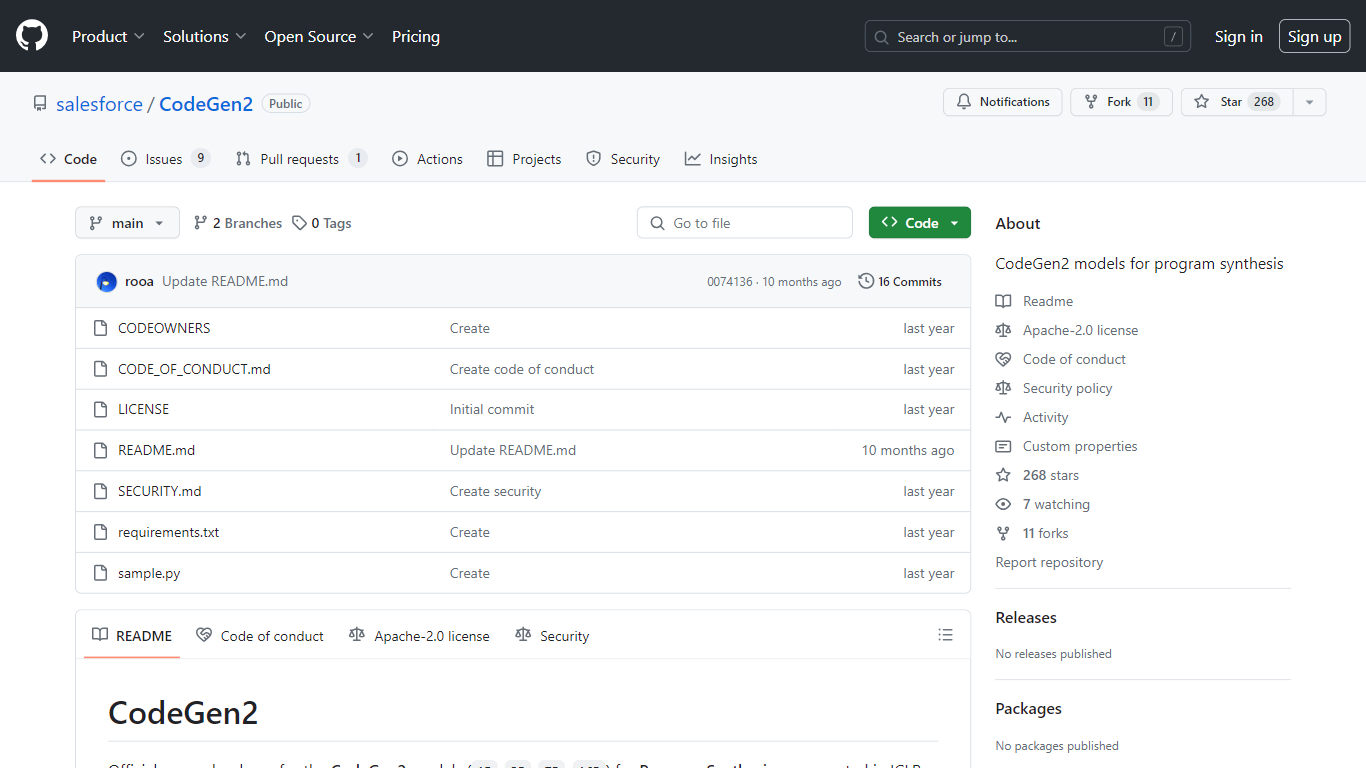
Last updated 10-23-2025
Category:
Reviews:
Join thousands of AI enthusiasts in the World of AI!
CodeGen2
Salesforce's GitHub repository "CodeGen2" presents their latest program synthesis models, detailed in their official research release. Geared towards helping developers with code generation, CodeGen2 offers models of various capacities, starting from 1B up to 16B parameters. Hosted on GitHub, users are encouraged to create an account to contribute to the ongoing development of these models. Additionally, the repository is integrated with Hugging Face, a widely recognized hub for open-source model sharing and collaboration, providing accessible checkpoints for each of the models. The models, specifically featured at the International Conference on Learning Representations (ICLR) 2023, are designed for both causal and infill sampling, offering a glimpse into the future of programming and the functionalities of large language models (LLMs) in the natural language processing domain.
Automate Any Workflow: Leverage GitHub Actions for end-to-end automation.
Host and Manage Packages: Utilize GitHub Packages as a private or public registry.
Secure Code: Find and fix vulnerabilities using GitHub's Security features.
Instant Dev Environments: Quick setup with GitHub Codespaces.
AI-Powered Coding: Improve coding practices with GitHub Copilot.
What is CodeGen2?
CodeGen2 is a suite of models for program synthesis that can generate code in various programming languages using a natural language input.
How can I contribute to the CodeGen2 project?
You can contribute to Salesforce's CodeGen2 by creating an account on GitHub and following the standard GitHub open-source contribution process
What is the license for CodeGen2?
The CodeGen2 project is licensed under the Apache-2.0 license, allowing for free use, modification, and distribution under the license terms.
Where was CodeGen2 presented and where can the models be accessed?
CodeGen2 is influenced by the research presented in ICLR 2023 and is available on GitHub and integrated with the Hugging Face Hub for model checkpoints access.
What are the different sizes of CodeGen2 models available?
CodeGen2 offers various model sizes, including 1B, 3B, 7B, and 16B parameter models, to cater to different computational and performance needs.
